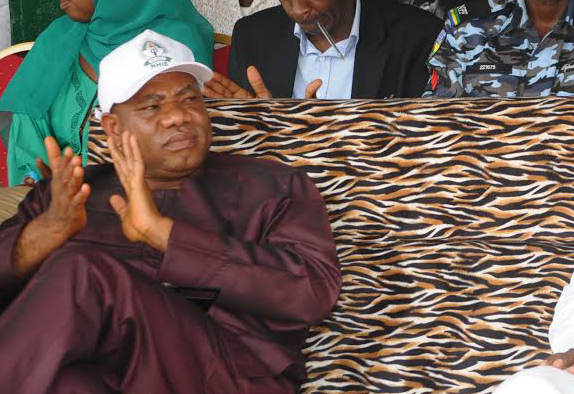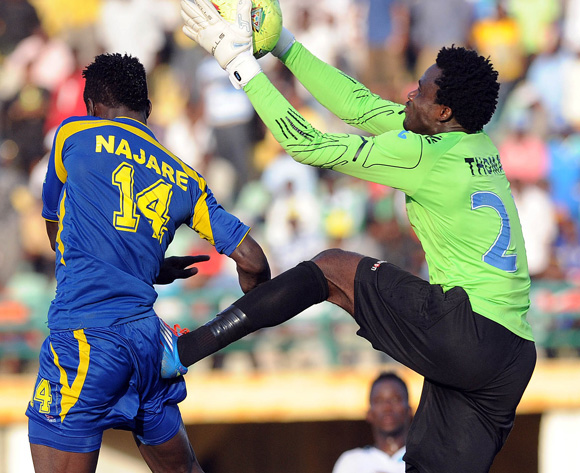We are back to the infamous name-and-shame era, when Nigerian banks, prodded by the Central Bank of Nigeria, decide to shift the blame of non-performing loans to defaulters alone and resort to publishing their names in the newspapers with a view to shaming them into submission.
Chronic defaulters, delinquent debtors and all sorts of names are used to describe the companies, institutions or social establishments whose names have appeared since Monday when deposit money banks started complying with the CBN directive to save the economy by publishing from August 1 the list of debtors in at least three national newspapers. Banks, discount houses and the nebulous Asset Management Corporation of Nigeria (AMCON) which was created after the 2009 banking crisis with N5trn to buy off non-performing loans (NPLs) from banks, are expected to comply with this CBN directive.
It may not look like we are back to the infamous 2009 era when some banks caved in and several bank Managing Directors were sacked and tried for their complicity in what nearly brought the economy to its knees. But the ominous signs are already there, especially now that there is a huge drop in oil prices and the naira is being systematically devalued against the dollar to stay afloat.
The global rating agency, Fitch, had predicted in February that NPLs in Nigerian banks would rise above CBN’s 5% limit by the end this year but might not go beyond 10%. It was no rocket science since the devaluation of naira amid weak crude oil prices will certainly signal a rise in the volume of NPLs, moreso that a huge chunk of the loans are oil and gas related.
Advertisement
Compared to 2009, the figures this time around are lower but not less threatening. Take First Bank Plc, one of the first that published the names of its bad debtors as case study: 92 companies owe a total of N43.72bn, already classified as non-performing. The first five on the list owe a combined N23bn. Two of those top five are oil and gas companies, with the highest debtor owing N6.883bn.
Unity bank, which was in the news last month over the sacking or supposed resignation of his MD, Henry Semenitari, also released 260 names of debtors with a combined NPL figure of N45.52bn. This is almost twice the amount required for a bank to recapitalize. The situation is similar across the banks – the amount of loans that are not performing is staggering and poses grave danger not only to the banks but to the economy in general, given the gloom in crude oil prices that has resulted in many firms borrowing huge sums that later became bad loans after oil prices fell.
Understandably, the aim of the CBN is to ensure that the industry NPL ratio does not exceed the prudential limit of 5% and, of course, to improve the credit culture in the banking industry. But the discussion that is trending all over the country now is the propriety of the name-and-shame method of dealing with loans that have gone bad. Did the similar approach work in 2009 before the government was forced to save the day through AMCON? Has AMCON delivered on its mandate or managed to create a behemoth open to all manner of influences and only managing to rescue a few privileged individuals? Indeed, can conniving credit officers in particular and the whole banking machinery that promotes unsustainable interest loan regime in general be free of complicity in this whole mess?
Advertisement
For sure, this is the season of media trials and legal entanglements. Smart lawyers will get juicy briefs. Already, a few of those embarrassed have started to kick, claiming not to owe at all or do not even have any relationship with the said companies. And even though almost N4trn is involved across board, those who know better say the real McCoy are not even listed, which probably explains why some companies with huge NPLs had only one director’s name listed. What happens to others and, in any case, why were the assets collaterals against the loans not published as well?
Ostensibly, we are faced with a peculiarly Nigerian factor here and it is clear that the whole truth is yet to be published. However, it is a bit befuddling that a country that seeks a thriving environment for Small and Medium Enterprises as panacea for economic growth is struggling with the management of its credit facility system. And like a friend quipped at the idea of name-and-shaming: “I’m owing you, you have seized my collateral; stopped me from having further access to finance; denied me forex, you still shame me so that nobody can touch me and you want your loan repaid?…you need to share what you are drinking.”
But as persuasive as this argument might be, is it admissible in law? Can an emotive outburst withstand the reality of the quarterly publication of loan defaulters as directed by CBN, even if the CBN Act stipulates that banks should provide for bad loans after two years?
In all these, it is the astounding weakness of the naira against the dollar that is at the heart of this desperate measure and the man whose capacity is being tested in all these, Godwin Emefiele, the CBN Governor, in Business Day on Monday said Nigerian banks are sitting on over $1bn they can’t use. It was an apparently burdened apex banker that expressed such perplexing thoughts, almost falling short of describing Nigeria as a ‘Dollar Republic’ where people have more faith in the dollar than in their own.
Advertisement
He is right though; for just recently, at the height of the profligacy of the immediate past administration, a very wealthy businessman had expressed consternation that there were more dollar notes circulating in Nigeria than in the entire West African sub-region. The USD has become for us the tempting wads that open nearly every door. Whether it’s needed to curry favours from practically every strata of public sector; sent on private jets in dubious arms purchase deals or sprayed at parties, the dollar commands almighty attention.
Only a few would have suspected that the day of reckoning would come so soon!
Now, the dollar is becoming almost like an albatross. Banks are no longer accepting it as cash deposits purportedly to wade off speculative currency substitution. Many categories of importers are precluded from accessing forex and at least on paper, every delinquent debtor is banned from accessing forex and Government Securities markets, all these against the background of untold hardship for those who need forex transfer for genuine reasons especially for educational causes. It might get worse: reading Emefiele’s lips, there may even be an amendment to how domiciliary accounts are henceforth opened or operated.
“Nigerian banks today are awash in dollar cash that they cannot bring to the CBN…If we were dealing with cash in naira, the banks are allowed to bring excess naira cash and when they do this, we credit their account. We cannot do the same for foreign currencies. It is what we call non-earning asset in banking and it is up to the banks to manage it,” he said.
Advertisement
What is clear is that the naira is in a bad shape, the economy is in precarious times and Emefiele would have to separate desperate measures that are temporary from a well thought-out policy direction that can save the day. In other words, he would have to dispense with voodoo economics that hangs on the last straw. He must now demonstrate that he is his own man. The temporary gain of N25 that his policy recorded on Monday when naira rose to N209 at the parallel market had been dramatically lost by yesterday morning when it suddenly dropped to N235. The solution, frankly, can neither be hurried nor artificial.
If the economy, like the loans, is not performing, Mr. Emefiele must do more than pontificate on how to stabilize the naira. His fiscal policy and the overall economic direction of the government must synchronize and be seen to encourage industry; and of course accord the very many bad eggs in the banking system as much sanctions rather than make hapless entrepreneurs, particularly those outside the oil and gas entrapment, the only fall guys.
Advertisement
What must change, to borrow from another concerned gentleman, is the “current banking model that is based on a liability generation strategy, which generates retail deposits and lend to very few, thereby creating a loan portfolio in the hands of a few and in limited industry.”
Advertisement
Add a comment






